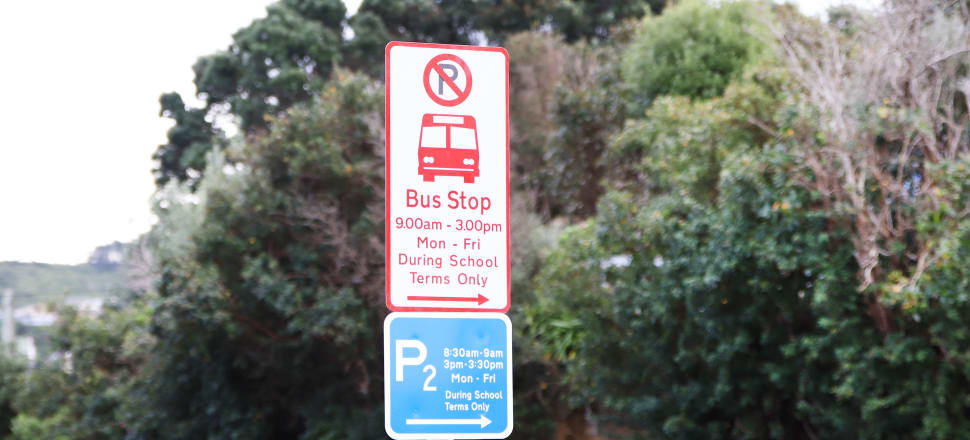
Born in the Hutt Valley, a bus driver battle over when a work day starts and ends is climbing its way up the court system and could have implications nationwide
The Court of Appeal has granted leave for a union representing bus drivers in the Hutt Valley to contest their clock-in and clock-out time.
The confusion began when amendments to the Employment Relations Act, which came into effect in 2019, laid out prescriptive rules for how many breaks an employee was entitled to depending on the number of hours worked.
It stipulated the length of a work period and how many breaks (10 minute or 30 minute) should be allowed for. However, it left drivers working split shifts unclear on how long their work day actually was.
Tramways Union, which represents drivers working on Tranzurban routes in the Hutt Valley, took a claim to the Employment Relations Authority in 2020 arguing the employer was not giving drivers their correct breaks, because they were not taking into account the length of time between split shifts.
Tramways union spokesperson Kevin O’Sullivan said in their mind, it was straightforward.
“We argued that a work period is when you arrived at work in the morning and when you go home at night, and doesn't matter what happens in between, whether there’s a four-hour unpaid break in between or whatever.
“A work period is your day's work.”
O’Sullivan said allowing for multiple work periods throughout one day, could cause problems down the track.
“Can you have 10 work periods in a day? And if that was to be the case, then they could essentially avoid paying rest breaks altogether. “Because people get signed on for a couple of hours, signed off again, and then signed back on again half an hour later or whatever and because the work period is less than two hours or whatever, there’s no rest breaks payable.”
Tranzurban Hutt Valley, which is owned by the larger Tranzit group, argued it was complying with its legal obligations, adding a work period was the time an employee was actually performing work duties or was on an authorised break.
“It cannot include time between shifts and common sense and pragmatism ought to lead to that being confirmed.” its submission read.
"That really isn't a good way to employ people. It’s exploitative and it's also dangerous." – Richard Wagstaff, CTU president
The ERA sided with the union, but in an Employment Court appeal the tables turned.
Tranzurban lawyer Daniel Vincent said there was nothing in the language of the act to suggest the starting and ending of work cannot happen more than once in any particular period
He also said the union’s proposition that multiple work periods would lead to abuse was incorrect.
“Were an employer to cynically employ staff for two-hour periods, with a gap between them so as to avoid providing any rest or meal breaks, there would be a potential grievance, which would engage the good faith provisions of the Act.”
Tramways’ lawyer Peter Cranney stood firm in their interpretation.
“Work period is defined by reference to a 'beginning' and an 'ending'. The definition does not say that it is the period during which the worker is working. There will be times in the work period when the worker is not working or required to work, but which are still part of the work period,” he told the court.
On appeal from Cranney the Court of Appeal this week granted leave to hear the case again.
Kevin O’Sullivan describes it as lawyers having a “field day”.
Wider implications
Council of Trade Unions president Richard Wagstaff said it would set a precedent not just for drivers but all employees working split shifts.
“I mean, there's a reason why there are hours of work regulations for people like bus drivers, because of the nature of their work and because of the nature of fatigue in the industry.
“And so from our point of view that really isn't a good way to employ people. It’s exploitative and it's also dangerous, ultimately, in terms of fatigue and just fairness for the bus driver themselves.”
He said without the work period being defined how the union saw it, drivers could essentially be on the clock for longer than 14 hours a day, without appropriate breaks.
“The reality is when you're on a split shift, which is effectively a long unpaid lunch, it can go for several hours. It's hugely inconvenient for people and a lot of drivers just sort of hang around the depot killing the time.
“So they’re long splits. It's more than 14 hours on the job. It's just too long.”
"They can’t go home between shifts, there’s no point. So they’re sitting at the depot for four hours at the behest of their employer.” - Ben McFadgen, Bus and Coach Association.
Bus and Coach Association Ben McFadgen said drivers doing split shifts was always something operators had to balance.
“Twenty years ago bus drivers lived closer to their depots. So if they’re finishing at 11am they can walk home and spend four to five hours at home and then come back. And as a work day goes, that’s more like two separate work periods.
“But nowadays, more people live much further away, and they can’t go home between shifts, there’s no point. So they’re sitting at the depot for four hours at the behest of their employer.”
He added Tranzit’s approach was consistent with how other operators around the country were applying the law.
Pay and conditions
Bus driver pay and conditions were acknowledged in this year’s Budget with $61 million set aside over the next four years to boost the sector.
But concerns remain around the market structure and how to ensure the best outcomes are delivered for both drivers and the routes they service.
The Bus and Coach Association has previously raised concerns about company mergers and the continued consolidation of the market.
Recently NZ Bus was bought by Australian-owned Kinetic, which bought another local company Go Bus in 2020.
“Increased market power inevitably leads to a reduction in quality of services, something that is already an issue in an industry forced into a race to the bottom through a competitive tender process, where contracts are awarded to the lowest bidder regardless of their quality or working conditions.
“Allowing a critical service provider to become this large will give them the ability to reduce the quality of their services below competitive levels,” the association said when the Commerce Commission was considering whether to approve the acquisition.
Last year one of New Zealand’s oldest operators, Ritchies, was sold to a US investment company.
And last year Tranzit snapped up North Island bus company Nimon.
Recent rule changes by the Government may go some way to addressing those concerns, with Michael Wood announcing local councils will be allowed to own and operate bus services in-house.
The initiative comes under the Sustainable Public Transport Framework, which replaces the controversial Public Transport Operating Model.







